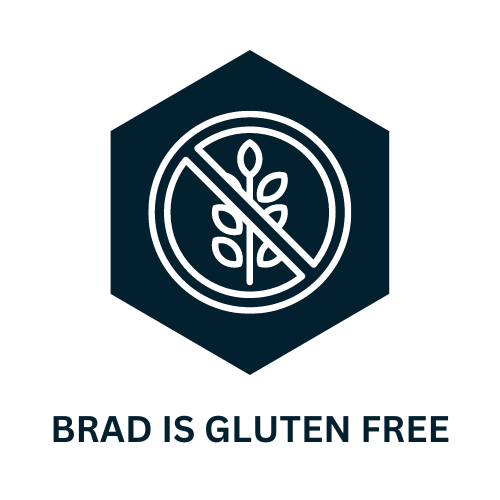Introduction
In the realm of gluten-free diets, the question of whether canola oil is gluten free often arises. With its widespread use in cooking and baking, understanding the gluten content of this versatile oil is crucial for those adhering to a gluten free lifestyle. In this blog post, we will dive deep into the subject, examining the nature of canola oil, potential cross-contamination risks, and the impact on gluten-sensitive individuals. By the end, you will have a clear understanding of whether canola oil can be safely included in your gluten free culinary endeavors.
- The Nature of Canola Oil
- Is Canola Oil Gluten Free?
- Production Process and Cross-Contamination Risks
- Reading Labels and Seeking Certifications
- Conclusion
The Nature of Canola Oil
Canola oil is derived from the seeds of the canola plant, a cultivar of rapeseed. Through careful breeding, canola plants have been developed to contain low levels of erucic acid, making them safe for human consumption. As canola oil is obtained by mechanically pressing the seeds and then refining the extracted oil, it does not undergo any chemical alterations that would introduce gluten. The oil is separated from the solid components of the seeds, ensuring that no gluten proteins are present in the final product.
Known for its neutral flavor and high smoke point, canola oil is a versatile and widely used cooking oil in households and food establishments. It is often praised for its heart-healthy qualities due to its low saturated fat content and abundance of monounsaturated fats.
Is Canola Oil Gluten Free?
The good news for individuals following a gluten free diet is that canola oil is inherently gluten free. The oil is extracted from the seeds of the canola plant, which does not contain gluten proteins. Therefore, pure and unadulterated canola oil should not pose any risk of gluten contamination.
Production Process and Cross-Contamination Risks
To ensure the gluten free status of canola oil, it’s crucial to consider the production process and potential cross-contamination risks. During the manufacturing process, reputable oil producers take precautions to prevent cross-contamination with gluten-containing ingredients. Dedicated facilities and strict protocols are typically in place to avoid any unintentional introduction of gluten into the oil.
However, it’s important to note that some brands may use shared facilities or equipment, which could pose a risk of cross-contamination. According to a study published in the Journal of Food Protection, researchers tested 60 samples of canola oil from various sources and found no detectable gluten in any of the samples. This suggests that the risk of cross-contamination with gluten in canola oil is generally low. Nevertheless, if you have severe gluten sensitivities or celiac disease, it’s advisable to opt for canola oil that is explicitly labeled as gluten free or certified by reputable gluten free organizations.
Canola Oils Labeled Gluten Free by Their Brand:
- Mazola: Mazola, a renowned brand in the cooking oil industry, understands the importance of catering to individuals with specific dietary needs. For those following a gluten free diet, Mazola offers a range of cooking oils, including canola oil, that are explicitly labeled as gluten free. This clear and prominent labeling provides assurance and peace of mind for individuals who need to avoid gluten in their culinary endeavors.
- Crisco: Crisco, a trusted brand known for its vegetable oils, including canola oil, also labels their products as gluten free. This labeling practice ensures that individuals following a gluten free diet can confidently choose Crisco canola oil for their cooking and baking needs.
Reading Labels and Seeking Certifications
When purchasing canola oil, always read the labels carefully. Look for products that explicitly state they are gluten free or free from potential allergens. According to a survey conducted by the Celiac Disease Foundation, 84% of respondents with celiac disease said that they always or usually trust gluten free labels when shopping for food products. This highlights the importance of clear labeling for individuals with gluten-related health concerns.
Additionally, seek out certifications from trusted gluten free organizations, such as the Gluten Free Certification Organization (GFCO), to further ensure the gluten free status of the canola oil you choose. According to the GFCO, their certification program requires products to contain less than 10 parts per million (ppm) of gluten, which is the threshold recognized by major celiac disease organizations. This stringent requirement provides an extra layer of assurance for individuals with gluten-related health concerns.
Conclusion: Canola Oil Gluten Free
In conclusion, canola oil is generally considered gluten free, as it is derived from the seeds of the canola plant, which does not contain gluten proteins. The risk of cross-contamination with gluten during the production process is generally low, but it’s important to be mindful of shared facilities or equipment that could pose a risk. By selecting reputable brands that prioritize gluten free practices or hold certifications from reliable gluten free organizations, you can confidently incorporate canola oil into your gluten free cooking and baking endeavors.
According to a survey conducted by Statista, the global canola oil market was valued at approximately $28.3 billion in 2020. This indicates the widespread popularity and usage of canola oil in various culinary applications, including gluten free cooking.
As always, individuals with severe gluten sensitivities or celiac disease should consult with their healthcare providers or registered dietitians for personalized guidance. Enjoy your gluten free culinary adventures with the versatility and health benefits that canola oil brings to the table!

